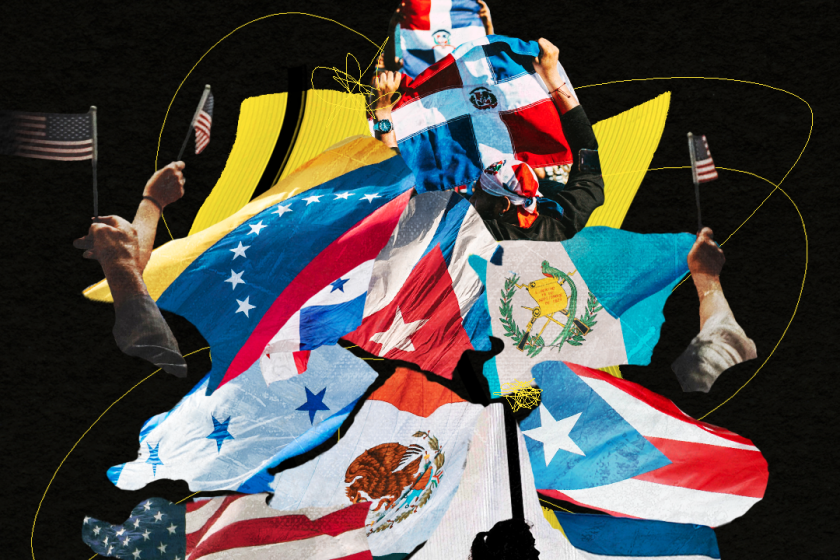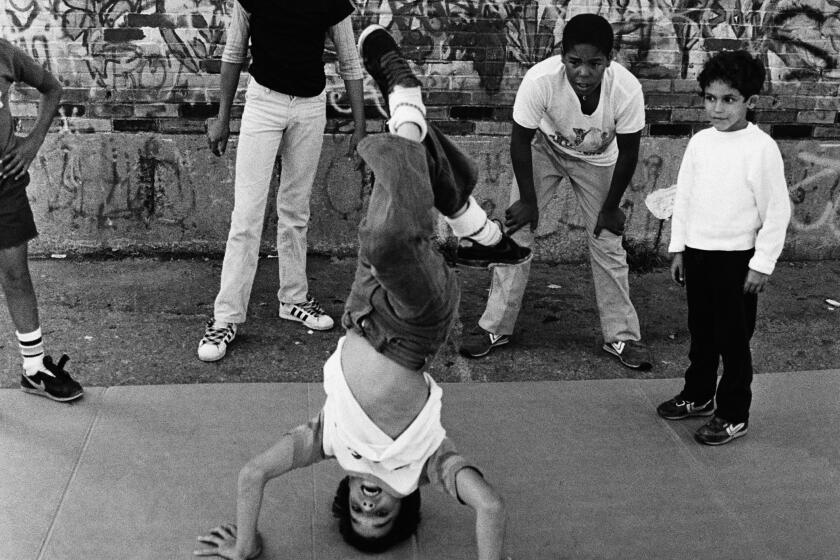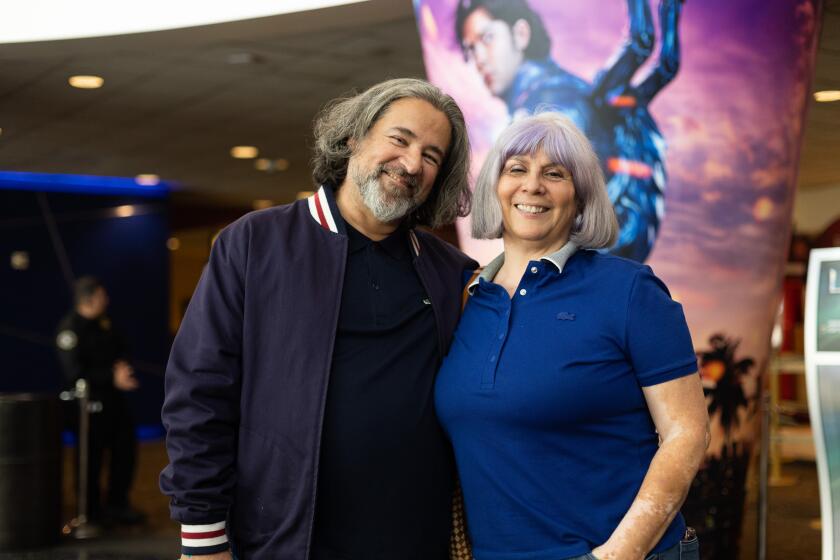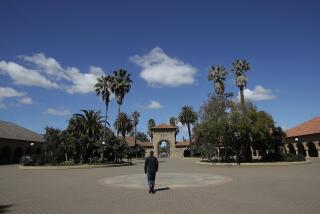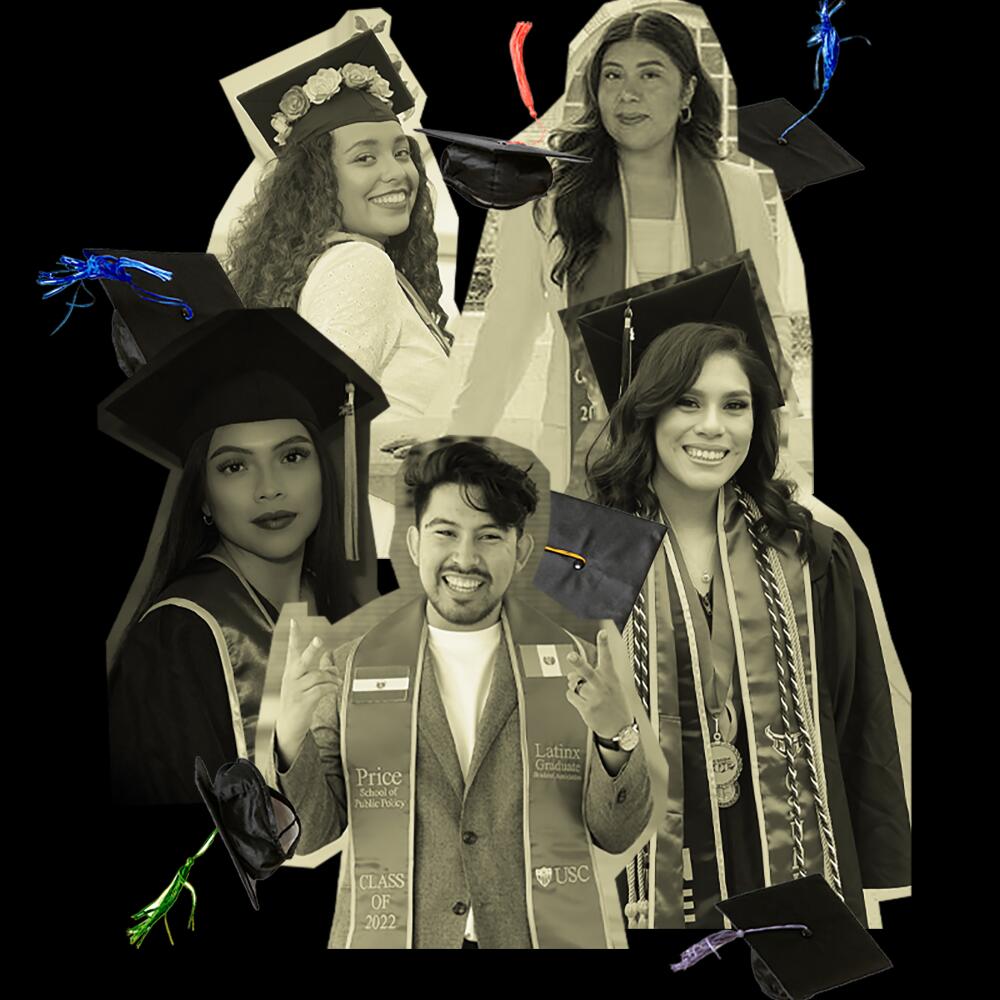
A new school year has begun, and many students are embarking on an exciting yet unfamiliar journey: their first year of college. This moment of transition presents different challenges for those who are the first in their families to pursue a college degree.
Audrey Dow, senior vice president at the Campaign for College Opportunity, a nonprofit organization, was once told to drop out of Brown University when she attended the Ivy League school in the 1990s.
“I was this 18-year-old Chicana from East L.A. talking to this white professor, and he’s like, ‘My suggestion is you drop out.’ And I said, ‘Drop out of your course?’ And he said, ‘Drop out of Brown.’”
Dow struggled to keep up with the day-to-day challenges of college life. The student who once sat in the front of the classroom at Garfield High School moved slowly to the back, “and nobody noticed … there was no outreach to me,” Dow said.
Homeownership rates, household incomes and attainment of U.S. citizenship vary among different Latino groups, the analysis finds.
Dow was the first in her family to attend a four-year university and graduate after transferring from Brown to USC. Now, she works to ensure that every student in California who wants to go to college has the opportunity to do so.
More than half of college students in the United States are first-generation students. These students tend to come from historically marginalized racial and ethnic groups, and are disproportionately low-income. Access to a college degree can afford students more opportunities, but the journey to that degree involves additional hurdles for first-gen students.
We asked readers to share their experience as current and former first-generation college students, and to provide advice to future students. Our readers shared feelings of isolation prior to and during college, but above all, a deep sense of gratitude for their journey despite the challenges. Here is more of what they had to say.
Completing paperwork
Filling out paperwork can be taxing for first-generation students. California recently adopted a requirement in which local education agencies, including charter schools, must have all high school seniors complete the Free Application for Federal Student Aid (FAFSA) or the California Dream Act Application (CADAA).
One of the most influential Los Angeles art institutions known for nurturing Latino artists has chosen Jennifer Cuevas to lead the organization.
While Dow agrees that the mandate will help close the gap in college access, she urges students to ask questions after they receive their financial aid package, such as, “How do you interpret that? How does it match up with what I learned?”
Litzy Del Valle was scared to be the first person in her family to pursue a degree, but she said her parents raised her to enter unknown territories without fear.
“My parents never helped me fill out FAFSA, submit applications, plan out my degree path or register for classes,” wrote the graduate of Los Angeles Valley College and Cal State Northridge.
Though first-generation college students may become frustrated with the journey to and through their institution, Del Valle advised students to find a guiding purpose.
“You must want this not only because your parents, family or loved ones told you to, but most importantly yourself.”
Students should be warned, however, if their financial aid has contigencies.

Get Involved
Knowing about contingencies and spending
Adonia Burciaga, a graduate of East Los Angeles College, wrote that her financial aid changed during college.
“I was so unprepared for how fast-paced the course was going to be, the amount of reading and writing I had to be doing. I ended up failing the class and went into the fall semester with no financial aid,” Burciaga wrote.
Caridad Hernandez, a graduate of Cal State Dominguez Hills, suggested that students act responsibly if they receive financial aid stipends.
Break dancing was created in the Bronx by Black and Puerto Rican youth during the 1980s and has since expanded to the world.
“DO NOT spend all your financial aid reimbursement money on materialistic things,” she wrote.
“I know that’s the most money we ever received in our lives since most of us come from low-income communities, but save that money to buy your textbooks, a new laptop for yourself and once you’re done buying the necessities, save the rest of the money,” Hernandez added.
Once students enroll in a college, Dow encouraged them to seek out campus support before classes start.
“It’s really imperative that our colleges and universities have a strong orientation, summer transition programs or student success classes that are available to all students,” Dow said.
Building community through support
Support from fellow first-generation students can ease the transition, Melissa Alvarez, a graduate of Cal State Dominguez Hills and UCLA, said.
“More than likely others feel the same as you and it would be helpful to talk to someone,” Alvarez wrote.
“As a first-generation student, you have to work harder to get to your destination. … Don’t be afraid to ask for help, and most importantly, give yourself grace and patience,” Alvarez said.
‘None of us are as strong as all of us.’ Xolo Maridueña’s family, friends rally behind ‘Blue Beetle’
Xolo Maridueña can’t promote ‘Blue Beetle’ because of the Hollywood labor dispute. But his family, friends and Latino community groups are spreading the word.
Melissa Rodriguez, a graduate of Cal State Fullerton and Columbia College, suggested students create a network of support.
“I had a small group of friends that would meet together to work on our applications,” Rodriguez wrote. “We held each other to deadlines, taught each other helpful organization or writing strategies, and most importantly, all cheered each other on.”
Asking for help
Reaching out for help might be difficult for some first-generation students, especially when it is often perceived as a sign of weakness, said Bryan Alfaro, a graduate of UC Merced and USC.
“In my family, we were really taught to not ask for help, make sure you’re not noticed, blend in, etc., “ Alfaro wrote.
Asking for help, however, can allow first-generation students to find their confidence at their institution.
A former gang member who left his criminal past behind, Richard Cabral has found success in Hollywood. His next move? A coffee shop in Pasadena.
“It wasn’t until I started asking for help and taking spaces I deserved that I felt more comfortable in my skin at school,” Alfaro said.
Experiencing culture shock
First-gen students will also have to prepare for culture shock.
“Seeing peers that have gone to prep school, seeing peers that are leaving for the weekend to exotic places or going crazy places for spring break and have been all over the world,” is something to be ready for, Dow said.
Though imposter syndrome might creep in, Dow encouraged students to remember that they belong by virtue of their admission.
“You absolutely belong and you have to actively use your voice to ensure that that college and university is serving you,” Dow said.
More to Read
About this story
The Latinx experience chronicled
Get the Latinx Files newsletter for stories that capture the multitudes within our communities.
You may occasionally receive promotional content from the Los Angeles Times.

